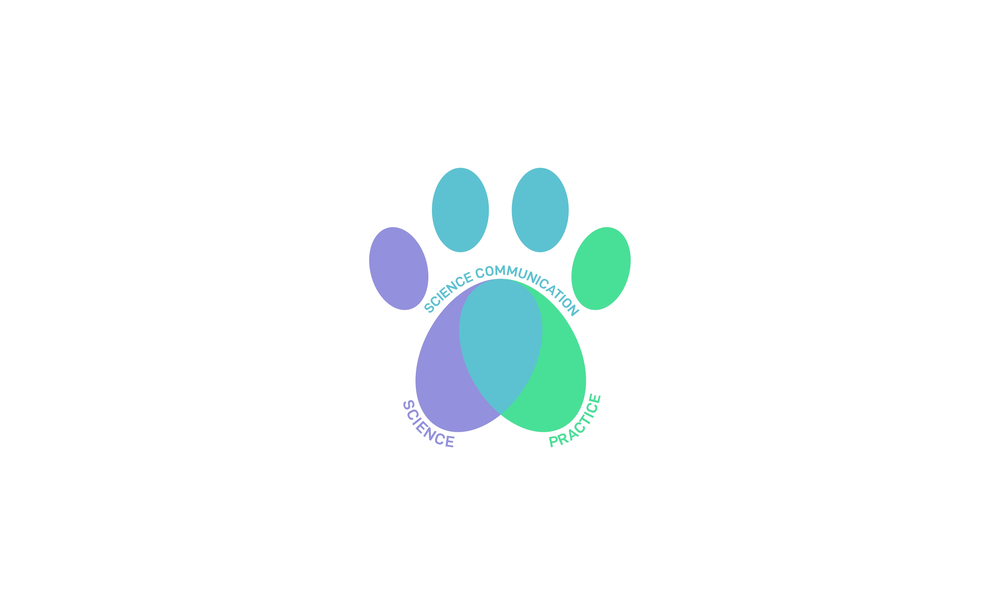Table of Contents:
Understanding the Importance of Controllability and Predictability in Dogs' Lives
Imagine a world where everything is unknown and out of your control. For humans and dogs alike, this can be a source of immense stress and discomfort. Controllability and predictability serve as anchors in the bustling flow of life, providing a structured canvas on which dogs can paint their experiences. Without these vital elements, dogs may feel lost at sea, unable to navigate the waves of their environment effectively.
Controllability in a dog's life equates to the power to affect outcomes through their behaviour. When a dog comprehends that performing a certain behaviour or response is associated with a certain consequence (e.g. sitting upon a signal leads to a reward), they grasp the concept of control. This understanding imbues dogs with confidence, allowing them to engage with their environment in a manner that promotes mental stimulation and well-being.
Predictability, the other side of this coin, allows dogs to anticipate what happens next. A simple yet profound example is the daily feeding schedule. If a dog knows that breakfast comes after their morning walk, they begin to align their internal clock with this routine. This anticipation can reduce anxiety and provide comfort, knowing that certain events in their lives remain constant.
The lack of predictability and controllability can manifest in various forms of distressful behaviour. However, by understanding and incorporating these concepts into their care, pet parents can pave the way for a more harmonious and fulfilling life for their canine pals.
How Controllability and Predictability Influence Your Dog's Welfare
When we delve into the realm of controllability and predictability, we observe a profound impact on canine welfare. A dog's ability to have some sway over their environment can reduce frustration and impede the onset of anxiety-related disorders. This perceived control nurtures resilience, enabling dogs to better cope with life's uncertainties and changes.
Known rhythms of life, such as a consistent walk or playtime schedule, bolster a dog's psychological welfare. These rhythms create predictable patterns that are mentally soothing. A dog that understands the sequence of daily events is more secure in their surroundings and exhibits a visible uplift in mood and behaviour.
Maintaining a delicate balance between controllable situations and predictable experiences fosters a nurturing environment for your dog. Such a well-structured atmosphere aids in preventing behavioural extremes and promotes a calm, yet alert state of mind, crucial for optimal learning and interaction.
Indeed, controllability and predictability are not mere conveniences in a dog's life; they are fundamental to their emotional stability and long-term health. Recognizing and respecting these needs is a testament to compassionate and enlightened dog care.
Empowering Your Dog Through Choices: The Essence of Controllability
Providing our dogs with choices is at the heart of fostering a sense of controllability. This empowerment is a form of respect, acknowledging their individuality and desire for agency in their everyday lives. When we offer opportunities for our dogs to make decisions, we are not just indulging whims; we are engaging with them in a dialogue that honours their intelligence and autonomy.
An empowered dog is an engaged dog. Choice can be as simple as offering different types of toys to discover their preferences, or as complex as allowing them to choose the direction of a walk. These moments of decision-making contribute to their cognitive enrichment, presenting mental challenges that keep their minds sharp and active.
Additionally, controllability through choice can significantly improve problem-solving skills. Dogs who are permitted to make choices learn to navigate their environment more adeptly, developing a keen sense of confidence that is visible in all aspects of their behavior.
Empowerment through choice is crucial. It shifts the paradigm of dog care from one of mere management to that of partnership and mutual respect, fostering a richer, more connected journey for both dogs and their humans.
Creating a Predictable Routine for Your Dog
Establishing a predictable routine is akin to setting a metronome to the rhythm of your dog's day. It offers a reliable structure that they can attune to, ensuring that the expectations of the day are understood. A well-charted routine can help dogs to relax into a regular pattern of sleep, wakefulness, activity, and rest, which is essential for their physiological health as well as their mental peace.
In designing this routine, consider the natural ebbs and flows of your dog's energy levels throughout the day. Align activities such as exercise, training, and mealtimes with these peaks and troughs to maximise their effectiveness and enjoyment. The routine should serve as a balance between stimulation and rest, with ample opportunity for both play and relaxation.
This does not mean that every moment must be scheduled without room for spontaneity, but rather that the cornerstone activities of the day are consistent. This regularity helps to establish expectations, providing a sense of normalcy that dogs can depend on, much like the comfort found in a familiar melody.
Through predictable routines, we give our dogs the sense of trust and security, allowing them to compose their days with harmony and ease, assured in the knowledge of what each new day's rhythm will bring.
Training Techniques That Enhance Dogs' Sense of Control
In the journey of dog training, techniques that enhance a sense of control are the stepping stones towards building a confident and responsive canine. By incorporating training methods that emphasise choice and consequence, dogs become active participants, learning that their actions wield power to influence results.
A clear communication system is the foundation for these techniques. This involves consistent cues and immediate feedback, allowing dogs to understand the link between their behaviour and the environment's response. Reward-based training exemplifies this, with positive reinforcement serving to clearly indicate the desired behaviour has been achieved.
Tasks that encourage problem-solving and decision-making can also boost a dog's sense of control. Puzzle feeders, scent work, and agility courses are excellent tools for engaging a dog's mind while providing them with control over how they tackle and solve each challenge.
A well-structured training approach that rewards decision-making not only trains a dog in specific behaviours but also instils a sense of mastery over their environment, vital for their psychological robustness.
The Impact of Human Behaviour on Dogs' Need for Predictability
Human behaviour significantly influences a dog’s perception of their world. Consistent and predictable actions from the owner reinforce a dog's understanding of their environment, whereas erratic human behaviour can undermine it. The cues and signals we provide, whether intentional or not, shape the expectations dogs have of us and their daily life.
By embodying steadiness in our interactions, we signal to dogs that their environment is stable and dependable. This can range from our reactions to their behaviour to the manner in which we go about our daily routines. When owners are reliable in their demeanour and in their expectations, dogs are less likely to feel uncertain or stressed.
It is important to reflect on how our behaviour can affect our dogs' stress levels. Sudden changes in routine or inconsistent responses may trigger stress and anxiety. Conversely, consistent behaviour can assist in creating a calm and stable atmosphere conducive to a dog's sense of security.
The human role in a dog's need for predictability is profound, acting as a guiding force that can either create harmony or discord in their lives. It is our responsibility as dog owners to ensure that our conduct fosters an environment in which our dogs can thrive with confidence.
Introducing New Experiences to Dogs: The Controlled Approach
Exploring new experiences is a vital part of a dog's life, providing enrichment and preventing stagnation. However, how these new experiences are introduced can make all the difference between an excited, curious dog and an overwhelmed, anxious one. A controlled approach to new experiences is key. Slow and steady acclimation helps dogs to adjust at their own pace, without feeling pressured or scared.
When introducing dogs to new stimuli, a phased approach is beneficial. Start with low levels of exposure and gradually increase the intensity as the dog becomes more comfortable. This could mean first allowing the dog to observe a new object from a distance before gradually moving it closer. This method gives dogs the chance to process and accept new information one step at a time.
During this process, observing a dog's body language is crucial. It provides real-time feedback on their comfort level, informing whether to proceed or give the dog more time to adjust. Using positive reinforcement during these introductions encourages a positive association with new stimuli, making future encounters more enjoyable for the dog.
Blending the new with the familiar using a controlled approach allows dogs to embrace change without the stress, leading to a well-adjusted, confident dog ready to take on the world's diverse offerings.
Conclusion: Fostering a Balanced Life for Your Dog Through Controllability and Predictability
To encapsulate, the pillars of controllability and predictability are instrumental in forging a balanced life for your dog. These concepts are timeless in their relevance and profound in their effect, shaping an environment where dogs can live with serenity and assurance. By embedding these principles into our care, we cultivate a setting where dogs can thrive and manifest their best, secure selves.
This holistic approach to canine care acknowledges the intricate nature of our dogs’ psychological needs. It honours them not just as pets but as sentient beings deserving of a life rich with certainty and autonomy. Such an enriched life not only mitigates the development of stress-related issues but also propels the growth of a deep bond between dogs and their humans.
In providing controllability and predictability, we do much more than manage our dogs; we guide them with compassion, allowing them to navigate life's complexities with confidence and contentment. It is a commitment to their well-being that reverberates through every aspect of their lives, and in return, enriches ours.
The journey towards a balanced life for our dogs is a testament to the love and respect we hold for them, highlighting the importance of controllability and predictability as cornerstones of exemplary dog guardianship.
FAQ on Enhancing Your Dog's Welfare Through Controllability and Predictability
Why are controllability and predictability important for a dog's well-being?
Controllability and predictability are essential for a dog's well-being as they provide a sense of security and allow dogs to anticipate events. This reduces stress and anxiety, enhances their ability to adapt, and supports a stable temperament, which is conducive to learning and obedience.
How does a predictable routine support a dog's mental health?
A predictable routine supports a dog's mental health by reducing unpredictability which can cause stress. Regular routines for feeding, exercise, and rest help establish a harmonious balance in a dog's life, aiding in reducing stress hormones and fostering an environment where the dog can thrive.
What are some ways to offer dogs choices to enhance controllability?
To offer dogs choices and enhance controllability, allow them to make decisions when possible, such as choosing between toys, selecting walking paths, or deciding where to sleep. This empowers them and improves their problem-solving abilities, contributing to their cognitive enrichment.
Why is consistent owner behaviour essential for dog predictability?
Consistent owner behaviour is crucial for establishing predictability as it assures the dog that their environment is stable. Consistency in owner responses and daily routines helps dogs feel secure and less stressed, reinforcing the owner-dog bond.
How should new experiences be introduced to dogs to ensure comfort?
New experiences should be introduced to dogs in a controlled way, starting with low exposure and gradually increasing as the dog becomes comfortable. Using a phased and patient approach alongside positive reinforcement creates positive associations and helps prevent overwhelming the dog.








